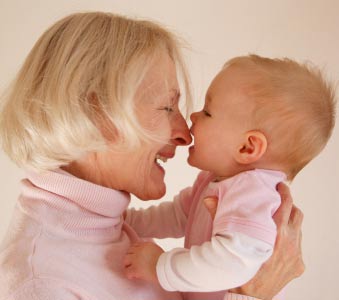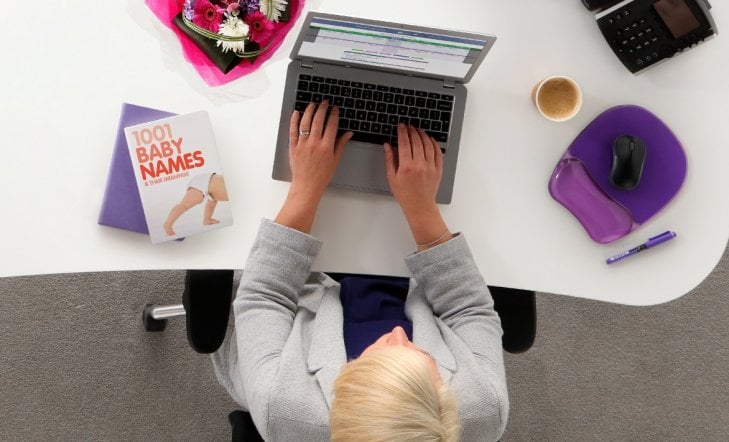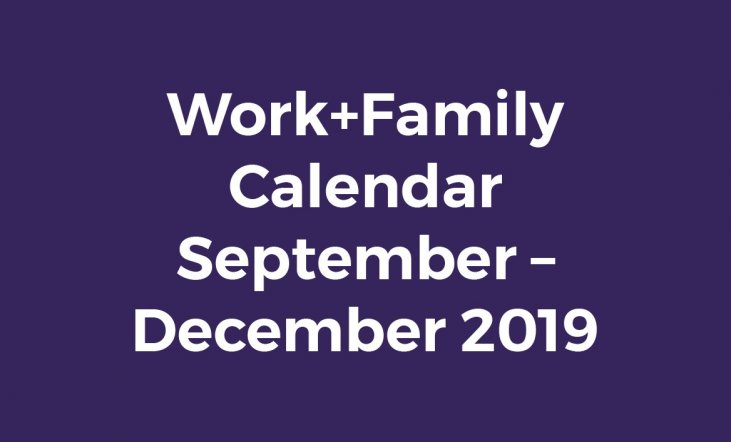Downloads
Newsletter Sign Up
Regular work+family updates for
HR and diversity professionals.
My Family Care asks Sarah: Research shows that we are part of an ageing population. How is this influencing work, life and family balances? What pressures does it create and what advantages can be taken from the shift?
Grandparenting in Europe
Our ageing population means that it is now much more common for a child to grow up while one, if not all of their grandparents are still alive. It also means that increasingly grandparents are not the oldest generation in the family, and that great-grandparents, and even great-great grandparents, are becoming more common. This, coupled with changes such as many more mothers with young children in the workforce, has huge implications for family relationships.
Despite all the talk of the burden of the ageing population, grandparents are often an enormous resource to their families, through the care and financial support they provide. Over the past three years we have been collaborating with King's College London Institute of Gerontology, the Beth Johnson Foundation and the Calouste Gulbenkian Foundation on a major study of grandparenting in Europe. One of my favourite statistics from the project is that it is not until the age of 75 that most individuals stop supporting their families financially and are more likely to receive this support themselves.
Personal experience
As a parent, I have benefited from grandparental childcare which gave me the occasional much needed break when the children were very young, and also helped me to juggle work and family life. Even though they live 60 miles away, my teenage sons are now able to help their increasingly elderly grandparents - especially with challenges with technology that I don't have the knowledge or time to help with myself. I had a close relationship with my own grandmother until her death at the age of 101, and I was able to support my aunt and father with her end of life care.
The changing age of pensions
So far the main political response to population ageing has been to postpone the age at which people will become entitled to a state pension - by 2028 the state retirement age will be 67 for both men and women, up from 60 for women and 65 for men. The implications for family relationships and work life balance have been given less attention.
However, one of the consequences of people working longer is that the childcare which one in four of all working families depend on, may no longer be available. Grandmothers - and it usually is grandmothers - who are most likely to be providing childcare, are generally fit, healthy, have younger grandchildren and are not working. They are the very women who governments across Europe want to stay longer in paid work to fund their own pensions and care.
Making choices
This presents families with difficult choices. If grandmothers delay their retirement and are no longer able to provide care, more mothers will leave the labour market. If we want grandmothers to stay in work longer - and we are told that our ageing populations mean they will have to - we will need to invest in affordable, universal childcare provision.
At the same time, increasing numbers of grandparents will find themselves in the sandwich generation, with their own parents still alive. Grandparents will be under unprecedented pressure to provide care and support up and down the generations, and to keep working. Therefore, better social care for very elderly people is needed too.
Part of the answer is to make it easier for grandparents to combine work and care, which will help mums stay in work too. This means more opportunities for grandparents to work flexibly, if that's what they want to do, and paid leave for grandparents who have to take on full time caring duties because parents are unable to care.
We also think it's time to explore making parental leave available for working grandparents, as already happens in some circumstances in Germany and Hungary. It seems obvious that it would be helpful to enable grandparents, as well as parents, to take emergency leave when children are ill. And there's a case too for allowing parents to transfer some of their entitlement to parental leave to a working grandparent, if that's how the family jointly want to arrange childcare.
If you've got views on any of this we'd like to hear from you.
Sarah Wellard, Director of Policy, Research and Communications, Grandparents Plus












